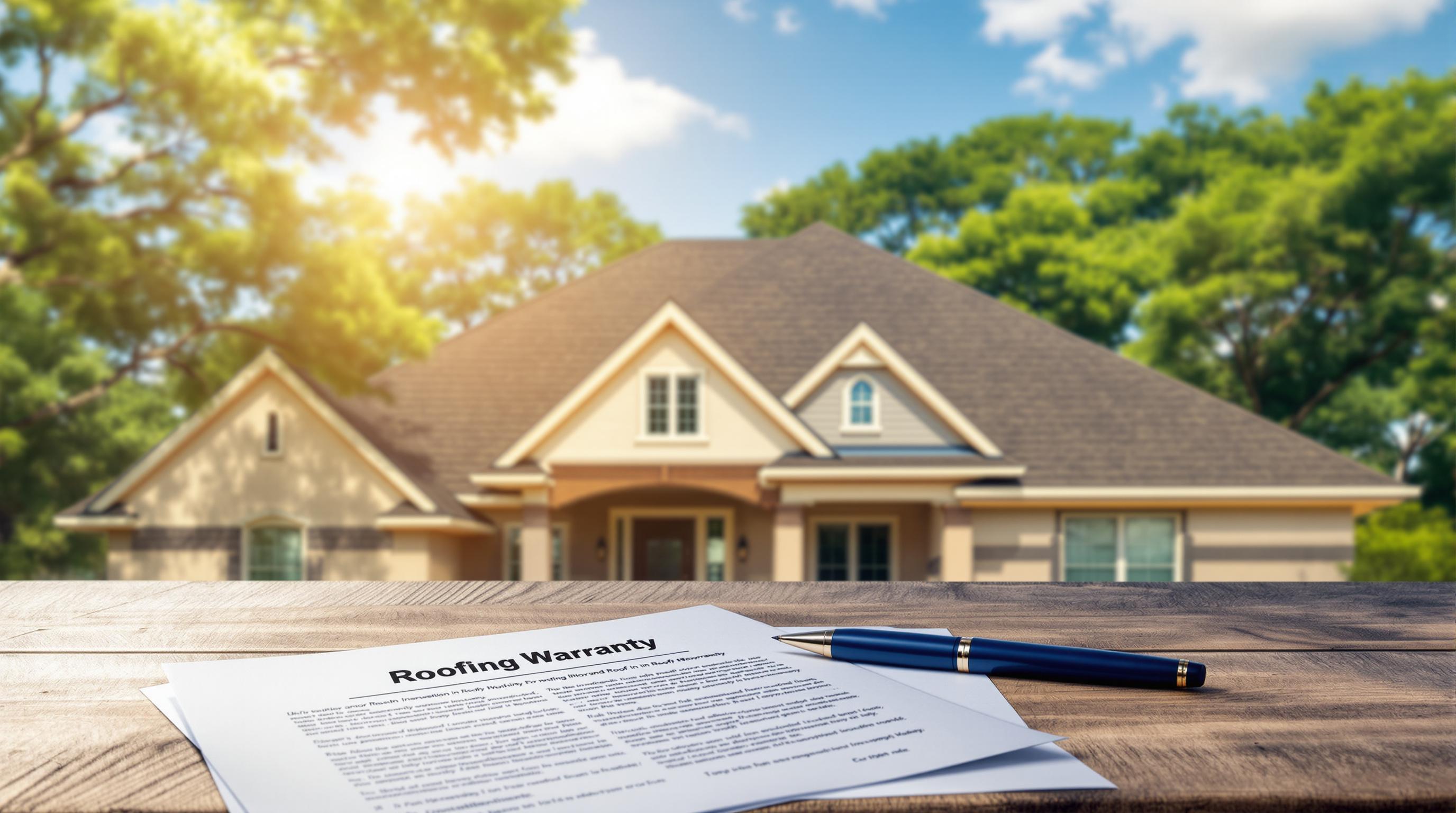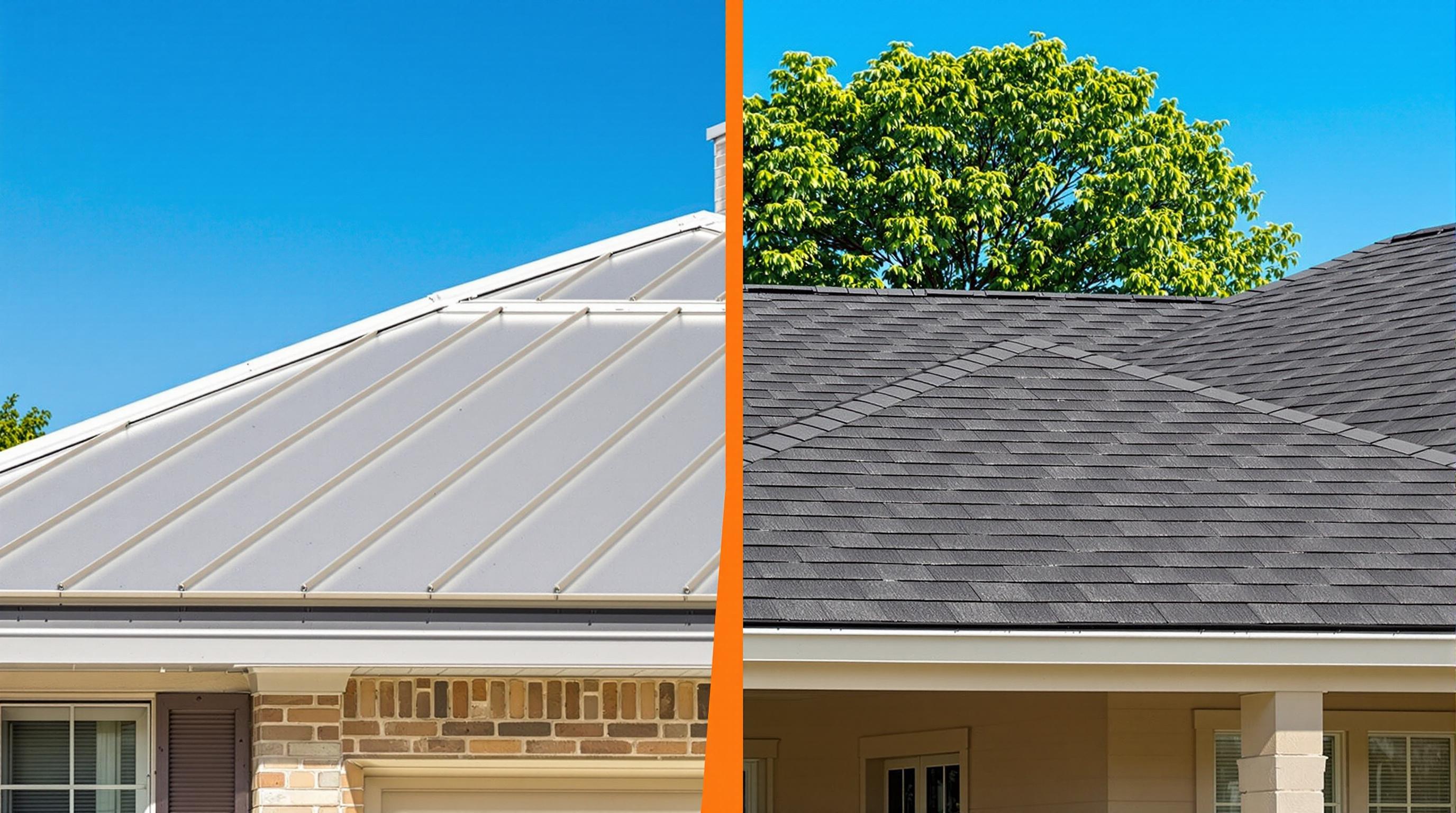Thinking about getting a new roof? It's a big decision, and knowing the costs can help you plan better. Whether you're just curious or actually need a new one, understanding the expenses involved is key. From materials to labor, and those unexpected extras, this article breaks it all down for you. So, how much does a new roof cost? Let's find out.
Key Takeaways
- The cost of a new roof can vary widely depending on materials and labor.
- Material choice impacts not just cost, but also the look and longevity of your roof.
- Labor costs can differ based on where you live and the complexity of the job.
- Don't forget about permits, old roof removal, and potential repairs.
- Using online tools can help you estimate your total roof replacement cost.
Understanding the Cost of a New Roof

Factors Influencing Roof Costs
When you're planning to replace your roof, several factors will influence the overall cost. The size of your roof is a major determinant, as larger roofs require more materials and labor. The complexity of the roof's design, such as the number of slopes and angles, can also increase costs. Additionally, your location plays a role; roofing costs can vary significantly depending on regional labor rates and material availability.
- Roof Size: Larger roofs need more materials and labor, increasing costs.
- Roof Design Complexity: More slopes and angles mean higher labor costs.
- Location: Regional differences in labor rates and material costs.
Average Cost Range for Roof Replacement
The cost of replacing a roof can vary widely. On average, homeowners might spend around $11,000 on a new roof, but prices can range from $6,000 to over $50,000 depending on various factors. For instance, a basic asphalt shingle roof might fall on the lower end of the scale, while high-end materials like slate or copper can push costs significantly higher. Roof replacement typically costs around $11,000, with a range between $6,000 and over $50,000. Factors influencing the cost include location, materials used, roof size, and the contractor hired.
| Material Type | Average Cost per Square Foot |
|---|---|
| Asphalt | $3.50 - $5.50 |
| Metal | $5.50 - $12.00 |
| Slate | $15.00 - $30.00 |
Importance of Accurate Cost Estimation
Getting an accurate estimate is crucial for budgeting and planning. A detailed quote from a contractor should include all expected costs, such as materials, labor, and any additional expenses like permits or disposal fees. Unexpected costs can arise, so it's wise to set aside a contingency budget.
Estimating the cost of a new roof accurately helps in avoiding financial surprises during the project. By understanding the full scope of expenses, homeowners can plan better and ensure they have the necessary funds to complete the project without compromising on quality.
Material Choices and Their Impact on Roof Cost
Common Roofing Materials and Their Prices
When it comes to roofing, the material you choose can significantly affect the overall cost. Here's a quick rundown of common roofing materials and their average costs per square foot:
| Material | Cost per Square Foot | Lifespan (Years) |
|---|---|---|
| Asphalt Shingles | $3.50 - $5.50 | 15 - 30 |
| Metal Roofing | $6.00 - $12.00 | 40 - 70 |
| Tile Roofing | $8.00 - $15.00 | 50 |
| Slate Tiles | $10.00 - $20.00 | 75 - 150 |
| Copper Tiles | $15.00 - $25.00 | 80+ |
Each material has its price range, and while asphalt shingles are the most affordable, options like slate or copper can be quite expensive due to their durability and aesthetic appeal.
Durability and Lifespan of Different Materials
Durability is a crucial factor when selecting roofing materials. Asphalt shingles are popular due to their low cost, but they generally last between 15 to 30 years. Metal roofs, on the other hand, can endure for 40 to 70 years, making them a long-term investment. For those seeking longevity, slate tiles offer an impressive lifespan of up to 150 years, though they come at a higher price.
Aesthetic Considerations and Cost Implications
Aesthetic appeal can also influence your roofing choice. Some homeowners prefer the classic look of tile roofing, which can add a Mediterranean feel to your home. Others might choose metal roofing for a modern, sleek appearance. While aesthetic preferences are subjective, they often come with cost implications. For instance, zinc tiles are not only visually striking but also highly resistant to corrosion, making them a premium choice.
When choosing a roofing material, it's essential to balance aesthetics, durability, and cost to find the best fit for your home. Consider how long you plan to stay in your home and what kind of maintenance you're willing to undertake.
Selecting the right material involves weighing these factors carefully to ensure your new roof not only fits your budget but also enhances the overall value and appearance of your home. If you're in Houston and need guidance, choosing a roofer who can help you navigate these choices is essential.
Labor Costs and Contractor Selection
How Labor Costs Vary by Region
Labor costs for roof replacement can differ significantly based on where you live. In places like Massachusetts, for instance, roofers earn between $60 and $90 per hour, primarily due to high insurance expenses and other related costs. These rates can fluctuate depending on local living expenses, demand for skilled labor, and even the local climate. In general, areas with higher living costs or a shortage of skilled roofers tend to have higher labor rates.
Choosing the Right Contractor for Your Roof
Selecting the right contractor is crucial for a successful roof replacement. Here are a few things to consider:
- Experience and Reputation: Look for contractors with a solid track record and more than a decade of experience. They should be able to provide referrals and have a history of performing thorough roof inspections.
- Material Expertise: The contractor should offer a variety of high-quality roofing materials from reputable manufacturers.
- Customer Reviews and Referrals: Check online reviews and seek recommendations from friends or family who have recently had roof work done.
- Warranty: A good contractor should provide warranties covering both materials and labor.
Impact of Contractor Experience on Cost
The experience level of your contractor can significantly impact the cost of your roof replacement. Experienced contractors often charge more, but they bring a wealth of knowledge and expertise that can ensure a smoother project. They are more likely to have the skills needed to handle complex roof designs or challenging materials, which can ultimately save you money by preventing costly mistakes. Additionally, experienced contractors are often well-versed in local building codes and can navigate these requirements more efficiently, potentially reducing additional costs associated with compliance.
Additional Costs in Roof Replacement
Permits and Regulations
When planning a roof replacement, securing the necessary permits is a must. Depending on where you live, this can add a few hundred dollars to your budget. Local building codes often dictate these requirements, and ignoring them can lead to fines or having to redo work.
Removal and Disposal of Old Roofing
Before you can enjoy your new roof, the old one has to go. This involves tearing off existing materials and disposing of them properly. Expect to pay between $1.00 and $5.00 per square foot for this service. It’s a crucial step that ensures the new installation is smooth and trouble-free.
Unexpected Repairs and Their Costs
Sometimes, the process of removing old roofing reveals issues that weren’t visible before. Damaged wood or structural problems can arise, leading to additional expenses. It’s wise to set aside a contingency fund—about 10-20% of your total budget—to handle these surprises.
Planning for these additional costs can save you from financial headaches down the line. It's always better to be prepared for the unexpected when tackling a big project like roof replacement.
Calculating Your Roof Replacement Cost
Measuring Roof Size and Complexity
When figuring out the cost of a roof replacement, start with the size and shape of your roof. Roofers usually measure in "squares," with one square equating to 100 square feet. To get an idea of your roof's size, calculate your home's square footage and multiply it by a pitch multiplier, often around 1.12 for a typical roof. This gives you the roof's approximate area. Remember, the more complex the roof, with features like chimneys or skylights, the more expensive it can be.
Estimating Costs Based on Material and Labor
The next step is figuring out the costs of materials and labor. Materials generally make up about 40% of the total cost, with labor accounting for the remaining 60%. For materials, prices can range from $3.40 per square foot for asphalt to $35 for high-end metal options. Labor costs vary, too, averaging around $60 per hour. For a rough estimate, multiply the roof's square footage by the cost per square foot of your chosen material. Then, factor in labor costs based on your area's rates.
Using Online Tools for Cost Estimation
Online calculators can be a handy way to get a quick estimate of your roof replacement cost. These tools often require inputs like your roof's dimensions, material choice, and location. They can provide a ballpark figure, but for an accurate quote, consulting with a local contractor is best. Remember, while online tools are convenient, they may not account for all variables, such as regional labor rates or unexpected repairs.
Replacing a roof is a big job, but breaking it down into steps can make it feel more manageable. From measuring your roof to picking materials and understanding labor costs, each step helps you get closer to knowing what to expect financially.
Regional Variations in Roof Replacement Costs
Cost Differences Across States
Roof replacement costs can swing quite a bit depending on where you live. In states with a higher cost of living, expect to pay more for a new roof. For instance, replacing a roof in California or New York might set you back more than in states like Kansas or Iowa. This is because labor costs and materials tend to be pricier in urban areas. Plus, local regulations and permit fees can add to the bill. Here's a quick look at some typical costs:
| State | Average Cost Range |
|---|---|
| California | $10,000 - $20,000 |
| New York | $9,000 - $18,000 |
| Texas | $7,000 - $15,000 |
| Florida | $8,500 - $16,000 |
| Kansas | $6,500 - $13,000 |
Impact of Local Climate on Roofing Costs
The climate in your region plays a big role in determining the type of roofing materials you'll need, which in turn affects costs. Areas prone to severe weather, like hurricanes or heavy snow, may require more durable and expensive materials. For example, metal roofs, which can withstand high winds, are popular in coastal areas but come with a higher price tag. In contrast, asphalt shingles might suffice in milder climates, keeping costs lower.
State-Specific Regulations and Their Costs
Each state has its own building codes and regulations that can impact the cost of a roof replacement. Some states require specific materials or installation techniques to meet safety standards, which can increase costs. Additionally, obtaining the necessary permits can add a few hundred dollars to your total expenses. It's wise to check with local authorities or a trusted contractor to understand these requirements before starting your project.
When planning your roof replacement, it’s essential to consider these regional factors to ensure you’re budgeting accurately. Ignoring them could lead to unexpected expenses down the road.
Maximizing Value in Roof Replacement

Exploring Insurance Coverage Options
Before diving into a roof replacement, it's wise to check if your homeowners insurance can cover some costs, especially if the damage is from severe weather or falling trees. Start by contacting your insurance company to understand the claim process. If they approve, they might cover a chunk of the expenses, saving you money. Just remember, you’ll probably need to pay your policy's deductible and keep an eye on how it might affect your premiums later.
Timing Your Roof Replacement for Savings
Picking the right time for your roof replacement can save you some bucks. Contractors are usually busiest in spring and summer, which can bump up prices. Instead, aim for fall or winter when demand is lower. This off-peak timing might not only get you a better deal but also quicker scheduling since contractors are looking to keep busy during these quieter months.
Negotiating with Contractors for Better Prices
Getting a good deal on your roof replacement isn't just about finding the cheapest quote. It's about understanding what you're paying for. Here's a quick guide to help you negotiate:
- Get Multiple Quotes: Aim for at least three to five quotes from different contractors. This gives you a good sense of the going rate and helps you spot any outliers.
- Analyze the Details: Don’t just look at the bottom line. Check what’s included in the price, like materials, labor, and any additional fees.
- Negotiate: Once you’ve got a favorite, see if they can offer a better price. Sometimes, just asking can lead to discounts or added perks.
Investing time in understanding your options and negotiating can lead to significant savings and ensure you get the most value out of your roof replacement.
Conclusion
So, there you have it. Getting a new roof isn't just about picking out shingles and calling it a day. It's a big decision with lots of moving parts. From the type of materials you choose to the labor involved, every choice impacts the final bill. And don't forget about those extra costs like permits and old roof removal. It's a lot to think about, but being informed helps you make the best decision for your home and budget. Whether you're looking to save a few bucks or invest in something that lasts, knowing what to expect can make the process a whole lot smoother.
Frequently Asked Questions
What is the average price to replace a roof?
The average cost to replace a roof in the U.S. is about $8,000, but it can range from $5,100 to $11,000 depending on factors like size, material, and location.
How do different materials affect the cost of a new roof?
Roofing materials like asphalt shingles are cheaper, while slate or metal can be more expensive. Materials affect not just the price but also the roof's lifespan and look.
Why do labor costs vary so much for roof replacement?
Labor costs depend on where you live, the complexity of the roof, and the contractor's experience. Areas with a high cost of living or complex roofs usually have higher labor costs.
Are there any hidden costs in getting a new roof?
Yes, hidden costs can include permits, old roof removal, and unexpected repairs. It's important to discuss all potential costs with your contractor.
Can I save money by timing my roof replacement?
Yes, scheduling your roof replacement during the off-season or negotiating with contractors can help lower costs. Always get multiple quotes to find the best deal.
Does insurance cover the cost of a new roof?
Sometimes, insurance may cover roof replacement if it's due to damage from storms or other covered events. Check with your insurance provider for details.



